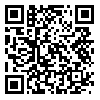

BibTeX | RIS | EndNote | Medlars | ProCite | Reference Manager | RefWorks
Send citation to:
URL: http://jdisabilstud.org/article-1-2615-en.html
2- PhD in Psychology, Associate Professor, Department of Psychology, Kharazmi University, Tehran, Iran
3- PhD in Psychology, Associate Professor, Department of Psychology, Tehran University, Tehran, Iran
Abstract
Background & Objectives: Test anxiety is an important educational problem that affects students's mental health, efficiency, talent development, personality formation, and social identity. For students to achieve academic success, the search for effective methods to reduce test anxiety is vital. One of the coping strategies for test anxiety is mindfulness–based cognitive therapy, which is to pay attention to the present without judgment to calm the mind and body in stressful situations. Also, using methods based on working memory training is one of the new methods to reduce the symptoms of test anxiety, including attention and concentration. No research in Iran has so far compared the effectiveness of the two mentioned methods. Therefore, this study aimed to evaluate and compare the effectiveness of mindfulness–based cognitive therapy and working memory improvement on reducing test anxiety in high school male students in recognizing the best way to reduce test anxiety.
Methods: This research was quasi–experimental with a pretest–posttest design with a control group. The study populations comprised all first–grade high school students in Tehran in 2017–2018. The inclusion criteria comprised having test anxiety, an IQ greater than 90, using the Raven IQ test to control the non–interference of IQ in the research, and completing the consent form. Atotal of 45 students were selected for three groups of working memory improvement, mindfulness–based cognitive therapy, and control group (each group for 15 persons). Each experimental group received 8 one–hour sessions of interventions. The research tool was Test Anxiety Scale (Sarason, 1980), in which all students were assessed before and after interventions. To describe the data, we used descriptive statistics indicators (mean and standard deviation) and to analyze the data, univariate covariance analysis and Bonferroni post hoc test in SPSS 24 at a significance level of 0.05.
Results: Findings showed that both interventions (mindfulness–based cognitive therapy and working memory improvement) had significant effects on reducing test anxiety (p<0.001). The effect size was equal to 0.74, which shows that group membership explained 74% of the changes in test anxiety. However, the size effect of mindfulness–based cognitive therapy was higher than working memory improvement (p<0.001).
Conclusion: According to the research findings, two methods of mindfulness–based cognitive therapy and working memory improvement significantly reduce students' test anxiety. However, comparing the methods, the effectiveness of mindfulness–based cognitive therapy is greater.
| Rights and permissions | |
 |
This work is licensed under a Creative Commons Attribution-NonCommercial 4.0 International License. |


